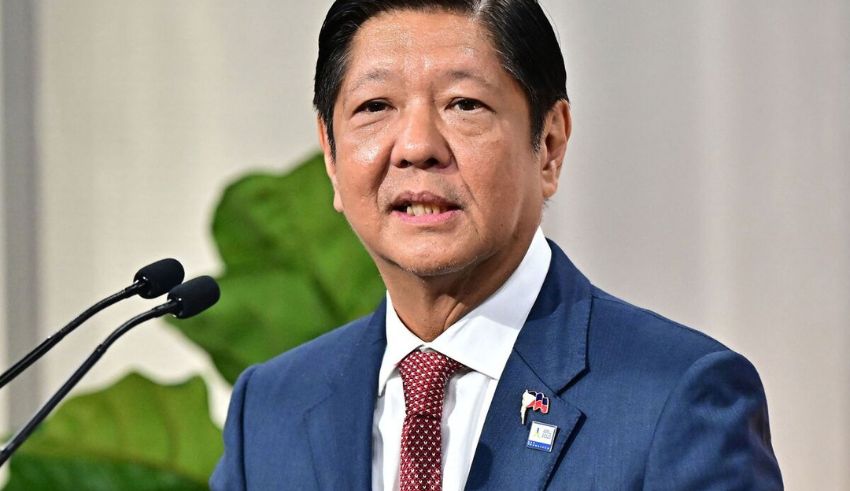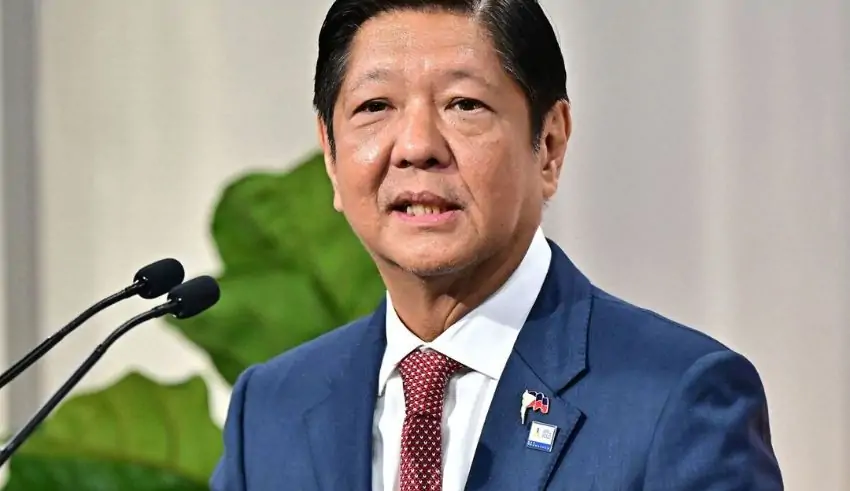

(C) Bloomberg.com
President Ferdinand Marcos Jr. broke with tradition by sending his congratulations to Taiwan’s president-elect Lai Ching-te following the election. This action, which is highly unusual in the realm of international diplomacy, reflects Manila’s growing alliance with US interests, especially in relation to the current tensions involving Taiwan.
President Marcos Jr.’s direct message of congratulations to President-elect Lai Ching-te on social media sent shockwaves through diplomatic circles. It marked a significant departure from the norm, as most countries adhere to the One China policy, which considers Taiwan as part of China rather than an independent entity.
The Philippines’ decision to openly support Taiwan’s new leadership underscores its growing alignment with US foreign policy objectives in the region. As Washington ramps up pressure on Beijing over Taiwan, Manila’s gesture serves to further solidify its position as a strategic partner in the US-led efforts to challenge China’s influence.
Predictably, Beijing expressed outrage at President Marcos Jr.’s congratulatory message to Taiwan’s president-elect. China’s government views Taiwan as an integral part of its territory and considers any recognition of its independence as a direct challenge to its sovereignty.
The Philippines’ diplomatic relations with China have been strained in recent years, particularly over territorial disputes in the South China Sea. President Marcos Jr.’s gesture towards Taiwan adds fuel to the fire, further complicating an already tense relationship between Manila and Beijing.
The Philippines’ pivot towards Taiwan comes amid heightened tensions between the US and China, with Taiwan emerging as a focal point of contention. As Washington continues to assert its presence in the Asia-Pacific region, Manila’s alignment with US interests could have far-reaching implications for regional stability.
Beyond geopolitical concerns, the Philippines’ relationship with China also has significant economic implications. China is the Philippines’ top trading partner, and any disruptions to bilateral relations could have adverse effects on both economies.
In addition to diplomatic posturing, the Philippines is also bolstering its military capabilities in the face of growing regional tensions. President Marcos Jr. recently approved a massive military procurement program aimed at enhancing the country’s defense capabilities and asserting its sovereignty in disputed areas.
Amidst these geopolitical developments, the Philippines faces a host of socioeconomic challenges, including high levels of poverty and unemployment. As the government prioritizes military spending, concerns remain about its ability to address the needs of its most vulnerable citizens.
As President Donald Trump declared economic independence through new tariffs he placed significant harm on developing countries in Southeast Asia…
Once again crowned the world's best entrepreneurship nation in the Global Entrepreneurship Monitor (GEM) Report, the UAE has claimed the…
At age 24 Mykhailo Polyakov from America violated regulations when he came to North Sentinel Island which authorities guard to…
The much awaited action thriller Runner is getting boosted with a stellar cast. Directed by Scott Waugh, the film has…
Emirates has launched a new product, Emirates Courier Express, which promises faster, more reliable, flexible express shipping to customers around…
Nintendo has announced the new Switch 2 to stir the gaming world with some fabulous features. This console of the…
This website uses cookies.
Read More